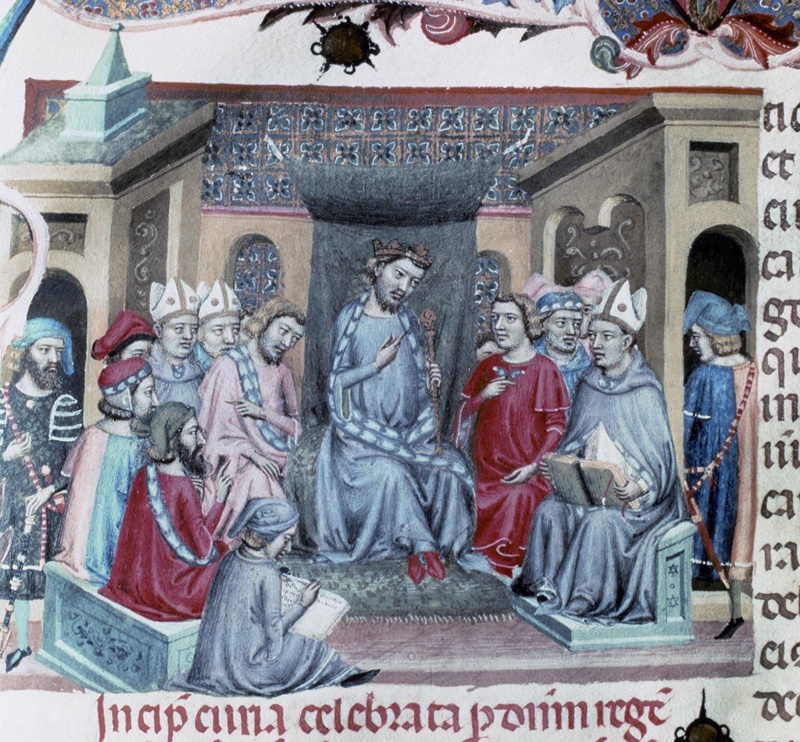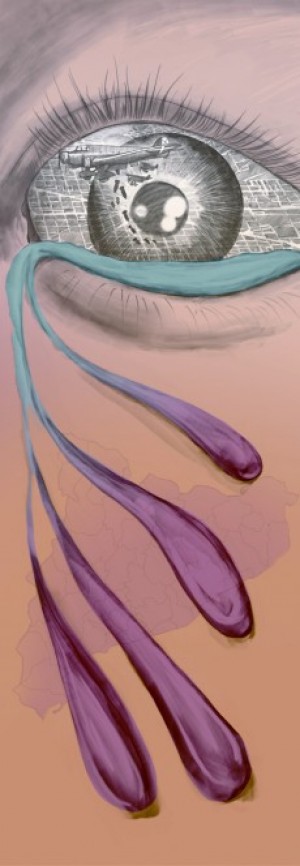THERAPIST: It’s been a while since your last visit!
BARCELONA: Oh, it’s because I’ve been having a great time, everyone’s been so nice. Everywhere I went I was like the carnival queen. It was like those abstract painters that nobody understands but everybody praises; the ones who can show their work with such admirable ease and charge even more admirable prices, numbers that can be truly mind-boggling. I don’t think any city in the world has been as pampered as I have over the last 20 years. Whatever I do, everyone flatters me. I suppose that I, more than anyone, embody the hopes and dreams that arose from the fall of the Berlin Wall. You remember Amigos para siempre, that song sung by José Carreras and Sarah Brightman and later by Los Manolos, that group that sounded Andalusian but were actually from Poble-sec in Barcelona? Well, that song was not only the official anthem for my Olympics, it was also the anthem of an era. Yes, yes, I know that the attack on the Twin Towers happened in 2001, but it’s not events that mark the end of an era, it’s hopes and fears.
THERAPIST: Have you seen the latest edition of the Global City Index? In 2008 you weren’t on it and in 2010 you were number 26. You’re now at number 24 on the list, above Rome, Amsterdam and other capitals. And while you continue to rise, Madrid has dropped from 17 to 18. I thought you’d be happy about that.
BARCELONA: Part of me is happy, but I’m also upset. Now that not even Francis Fukuyama believes that myth about the end of history, I’m scared that history will bring me down again. I’m fed up with constantly being a city of false dawns. Since the 15th-century, I’ve been sailing against the wind. Sometimes it seems I’ve the wind in my sails but then I suddenly find myself in a storm and I don’t emerge until years later, a shipwreck, when everyone presumes I’m finished. I remember the dawn of modernisme, and right after that came Primo de Rivera’s terrorism and dictatorship. I remember the Republican dawn and then the long, dark night of Franco’s dictatorship. I remember the Sack of Rome in 1527 and teaching the Turks a lesson at the Battle of Lepanto, but I also know where Philip II decided to establish Spain’s capital. I remember the Catalan Revolt, or the Reapers’ War, and how Madrid stopped me from making the move from a commercial economy to a capitalist economy at the same time as Amsterdam and London. Not to mention the defeat by the Bourbons in the War of the Spanish Succession in 1714, when I was just on course to become a focal point of the Enlightenment. Or Napoleon, who cut my country to pieces just when I was starting to recover from the Bourbon occupation. I even remember the 14th-century plagues that left me without the human force I needed to consolidate a modern state just at the zenith of my history, my greatest time of growth.

© Prisma
Representation of the Catalan Assembly in Montblanc on 18 June 1333, chaired by King Alfonso IV of Aragon , in a plate from the Llibre dels Usatges [Book of Uses] of Barcelona, a bill of rights which predates England’s Magna Carta by 100 years.
I’m sure they’ve all thought: “When have you ever heard of sharing prestige with a stateless city, a city without an army, a city without an international language?” I bet that’s what they think. The world admires my architecture, my painters, my cuisine, Barça football team, but it hardly ever remembers that the secret to my magic is Catalonia. Maybe it’s better that way, because when Catalonia gives me too much personality of my own, everyone rushes to destroy it. If I’m still standing, it’s because of the strength I get from the memory of my lost freedom and because I’ve remained inscrutable to most foreigners. Outsiders don’t make the connection between my charm and my history and ambitions. Even my own citizens are mostly unaware that I know something about civilization, just like any other capital in the world.
On the one hand, I’m treated like a second-class city, but on the other I instil fear because it is I, Barcelona, who is the legitimate heiress of Ancient Rome. I’m directly related to the Roman Republic, where the head of state was a primus inter pares, a first among equals. In my house, kings have always governed under a contract. Which other city imposed an oath like this on its kings: “We, who are as good as you, swear to you, who are no better than us, to accept you as our king and sovereign lord, provided you observe all our liberties and laws, but if not, not”? History has not let me impose my ideals, but that hasn’t stopped them from permeating my entire history. My patron saints are a woman (St Eulàlia) and a black man (St Cugat). The 13th-century writer, Ramon Llull, who was the son of an eminent Barcelona family, tried to reconcile Christians and Muslims. Here, the word “feudal” always meant respect for the common people. I invented feudalism in the good sense. Catalonia was the first region in Europe to have a written declaration of rights. The Usatges of 1076, a compilation of laws, came 100 years before England’s Magna Carta. In Paris, the masses abolished feudalism because the French were beastly with it, but until the defeat of 1714, the Catalans were the freest people in Europe.
I’ve never been the world’s most important city, nor have I tried to be. When I conquered the people of Majorca, I gave them a kingdom; when I conquered the people of Valencia, I did the same. Politics needs the others, so it doesn’t become abusive. The crisis we’re now in is due to the obsession that the capitals of large nation states have with acting as though they were alone in the world. With a city or country, one can trade or declare war, but you can’t take away what is given by God. Today’s discourse on urban networks doesn’t tell me anything new. My 15th-century experts already said that Catalonia was a system of ten cities. I’ve always liked being part of a larger body. But when that body goes against my interests, I struggle to get away, just like a person will leave a club or political party that no longer represents them.
THERAPIST: Well, you were born with a very human combination of virtues and faults: that’s why people love you. You were born facing the Mediterranean, the kindest of all the world’s seas. You have a wonderful climate and surroundings. In this sense, you do Voltaire justice when he said that “Catalonia can forgo the whole universe, but her neighbours cannot forgo her”. You’re an ideal point of convergence for all the Catalan cities, but from an Iberian or European point of view, your geopolitical location is marginal. Genoa, Valencia, Venice and Constantinople are all better placed Mediterranean ports. Tarragona gives better access to the Iberian Peninsula. Madrid, Rome, Paris and London are better positioned than you because they’re all capitals of major nation states. Your virtue is your unequalled positioning for gathering the synergies of Catalonia, a land poor in natural resources but with a pleasant climate and, above all, easy to defend. Geopolitics has mediated your history and while it has protected and pampered you and allowed you to have a rosy view of life, it has also stopped you from realising your great ideals and this has gradually made you doubt yourself.
When major armies started to determine the outcome of wars, you lost your empire, because you have more brains than brawn. But you survived and the euro is giving you the opportunity to become the capital of a large Euro region that stretches from Valencia up to Montpellier, taking in Toulouse, Zaragoza and Palma de Majorca. If you manage to connect the Iberian Peninsula with the urban axis from London to Milan, you’ll have a role on the world stage; you just need to improve your attitude. You have to lose your fear of failure and get over the fear fostered by past defeats. Sometimes you’ve been too idealistic, but at other times you’ve fallen into the trap of your own pragmatism. Since Philip V, the Spanish state’s policies have been based on the belief that your elite classes could be bought. And that was not exactly the case. They bought off the Catalan bourgeoisie with noble titles and when Catalonia went too far for their liking, they kicked off a civil war. To retain your power, you had to give in when you couldn’t win. You’ve dealt with all kinds of humiliation to avoid being left outside the circle of the big cities. You’ve let all kinds of things be said and done to you. But now that success is within reach, you shouldn’t let past humiliations become your demons, but rather the driving force to move onwards and upwards.





Molt bo. Si Catalunya fos un país normal series un intel·lectual important i reconegut. Però jo t’he descobert a través del Twitter!! Salutacions.
Impresionante. Que escrito tan ridiculo y de autobombo. ¿cuantas horas perdiste escribiendo estas chorradas?